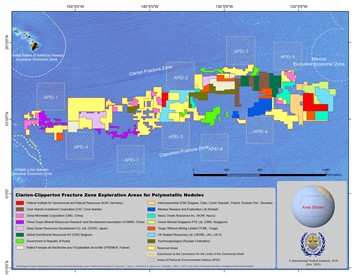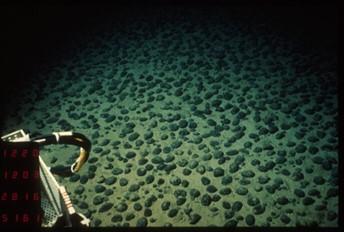Dr. Jeroen Ingels joins team of internationally renowned researchers to study the impact of collecting minerals from the deep sea.
 DeepGreen Metals Inc., a polymetallic nodules exploration and development company, has partnered with leading scientific research institutions and internationally renowned universities to study the potential impacts of removing polymetallic nodules up from the bottom of the Clarion Clipperton Zone (CCZ) of the Pacific Ocean, at over four kilometers depth. Polymetallic nodules are a rich, concentrated source of nickel, copper, manganese, and cobalt, the demand for which continuously increases.
DeepGreen Metals Inc., a polymetallic nodules exploration and development company, has partnered with leading scientific research institutions and internationally renowned universities to study the potential impacts of removing polymetallic nodules up from the bottom of the Clarion Clipperton Zone (CCZ) of the Pacific Ocean, at over four kilometers depth. Polymetallic nodules are a rich, concentrated source of nickel, copper, manganese, and cobalt, the demand for which continuously increases.
Florida State University Coastal and Marine Lab’s Dr. Jeroen Ingels will be joining in the research efforts of this massive study. His lab will lead the study on the impact of the mining activities on meiofauna, and explore their biodiversity and ecology in this remote and understudied part of the world. Meiofauna are the microscopic animals that live in between the sediment grains on the sea floor, where they fulfill important ecosystem processes and functions.
Collecting polymetallic nodules at a commercial level from the deep-sea floor has never been done before,  and the potential impacts of this collection are widely unknown. Dr. Ingels will analyze his findings and work with the other scientific institutions participating in this study to create a comprehensive, peer-reviewed impact statement that will then be presented to the International Seabed Authority (IAS), established by the UN Convention on the Law of the Sea (UNCLOS).
and the potential impacts of this collection are widely unknown. Dr. Ingels will analyze his findings and work with the other scientific institutions participating in this study to create a comprehensive, peer-reviewed impact statement that will then be presented to the International Seabed Authority (IAS), established by the UN Convention on the Law of the Sea (UNCLOS).
DeepGreen is committed to making all findings of the survey accessible to the public and shared within the international community. To stay up to date on this project, and to learn more about DeepGreen, click here.
